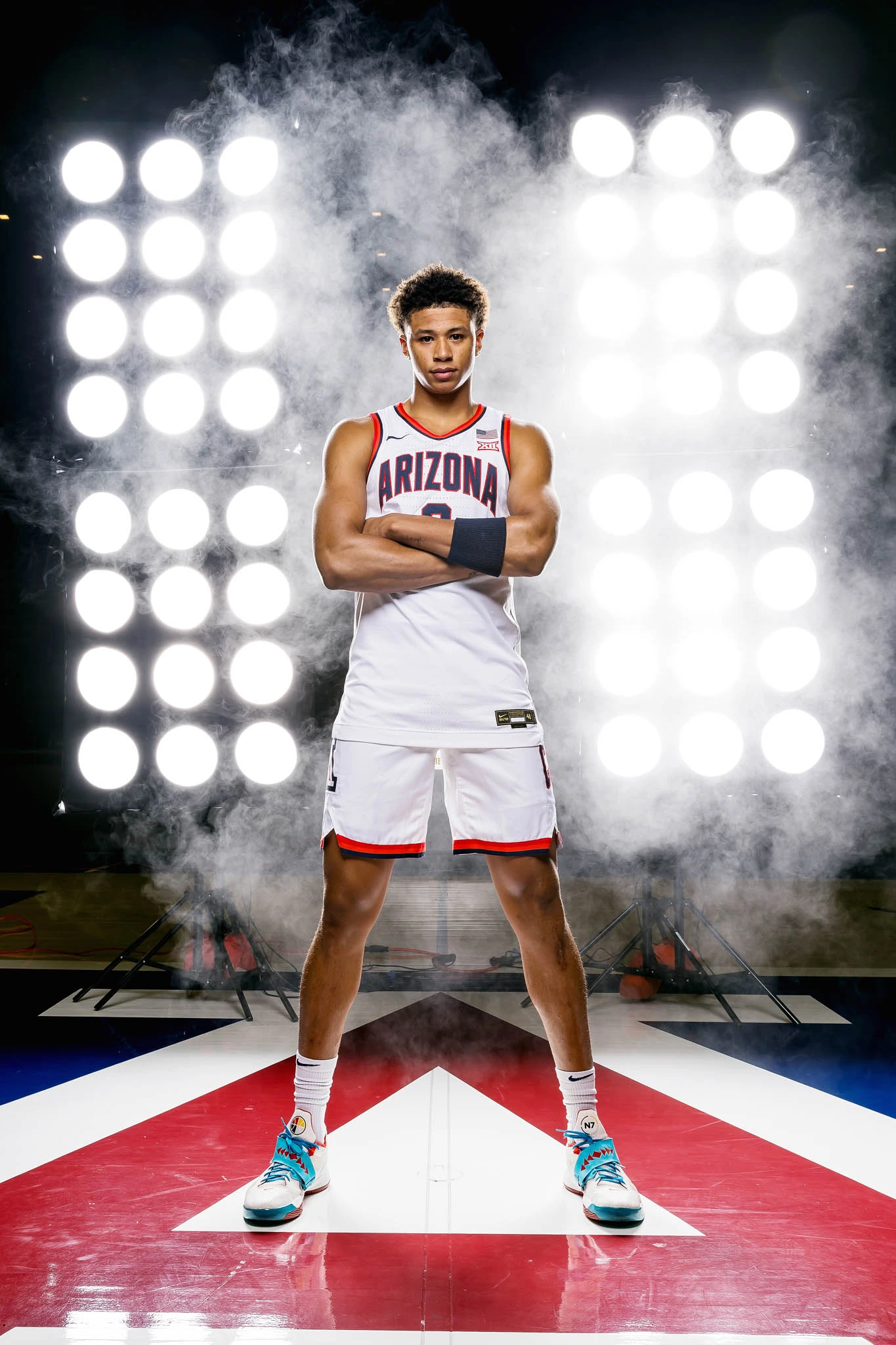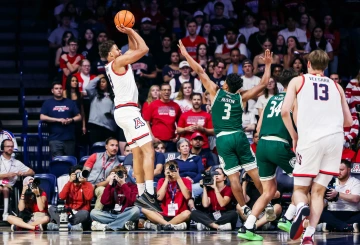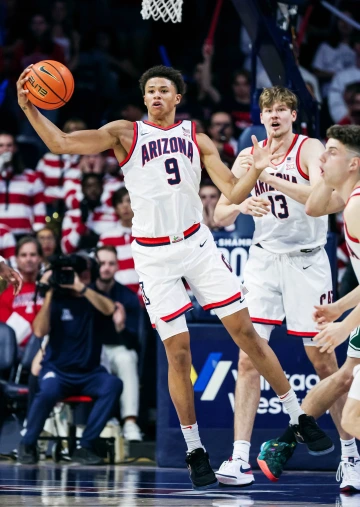Team Player
Men’s basketball forward Carter Bryant discusses his Wildcat debut and his experience being raised around the Deaf community

Carter Bryant
Arizona men’s basketball freshman Carter Bryant first saw his future as a Wildcat when he was 6 years old. He was at McKale Center watching his aunt, Shaquillah Torres, tear up the court as an outside hitter for Arizona volleyball.
For three seasons, Bryant and his family made the seven-hour drive from Riverside, California, to Tucson. He remembers two things about those trips: They always stopped at No Anchovies on University Boulevard for pizza — classic pepperoni for him — and McKale was always packed.
“You walk in, you’ve got people screaming and getting all rowdy for a volleyball game, and you’re just like, ‘what’s going on?’” Bryant says.

“That was the first thing that caught my eye.”
Bryant was captivated. He decided that he, too, would be a Wildcat one day.
“I always used to tell everybody: Arizona is my school.”
But while sitting in the stands at McKale, watching his aunt play, Bryant didn’t know if he’d play a sport at U of A — only that he would attend. Still, the seeds of a basketball career had been planted: His dad, D’Cean Bryant, was a coach for the girls’ team at the California School for the Deaf in Riverside. As the coach’s kid, the younger Bryant spent countless hours hanging around the CSDR campus after school.
“It was my life,” he says. “I was going to baseball games. I was going to softball games. I was going to seven-on-seven football games. I was always going to basketball games. … I would be in there, watching, shooting on the side. That’s all I knew. That was my life growing up.”
Bryant is a grandchild of deaf adults, or GODA. His grandfather, Mike “Doc” Torres, is a member of the USA Deaf Basketball Hall of Fame. His grandmother, Shelly Freed, is a longtime educator and administrator at the California School for the Deaf. His mother, Sabrina Torres, is a sign language interpreter.
Before Bryant could talk, he was learning to sign. The first word he signed? “Ball.”
Seriously.
Bryant moved a step closer to his Wildcat dream during his sophomore year of high school when Arizona head basketball coach Tommy Lloyd and associate head coach Jack Murphy attended one of his practices.
Of course, it just happened to be one of the worst practices of his basketball career.
“I was missing dunks,” Bryant recalls. “I was missing shots. I don’t usually have airballs. I was all over the place defensively. I just felt like I could throw up the whole practice because I was so nervous.
“After practice, I just cried for, like, 15, 20 minutes. I was like, ‘I’m never going to get to go to Arizona.’”

Lloyd assured him that his dream was still achievable. He encouraged Bryant to keep working on his game. Each time Lloyd returned to watch Bryant play, he gave the aspiring Wildcat two new things to focus on. At the end of his junior year, Bryant gave his verbal commitment to play at Arizona. His senior year, Bryant was a top-20 player in the country and was named a McDonald’s All-American, the highest honor for a high school basketball player.
“Going back and looking at it now, he was transforming me as a player,” Bryant says.
Bryant’s childhood dream finally came true Nov. 4, when he played his first regular-season game in an Arizona uniform, a 93-64 win over Canisius. The night before, he didn’t fall asleep until about 4 a.m. His mind was racing, replaying everything — and thinking of everyone — that had led him to this moment. His parents, his grandparents and his time spent at the California School for the Deaf were top of mind.
The forward played 16 minutes off the bench, adding six points, a rebound and a steal. It wasn’t a star performance, but Bryant knew he was exactly where he was meant to be.
“It was awesome,” Bryant says of his Wildcat debut. “Being in the moment allowed me to just have fun and enjoy the crowd. … It was probably the most fun I’ve ever had playing basketball.”
As his profile rises, Bryant intends to bring awareness to the Deaf community and hopes to host basketball camps in Tucson and at the California School for the Deaf as soon as next summer. Part of it, he says, is using his platform to make an impact. Part of it’s giving credit where credit’s due.
“They deserve it,” he says. “They’re amazing people.”
